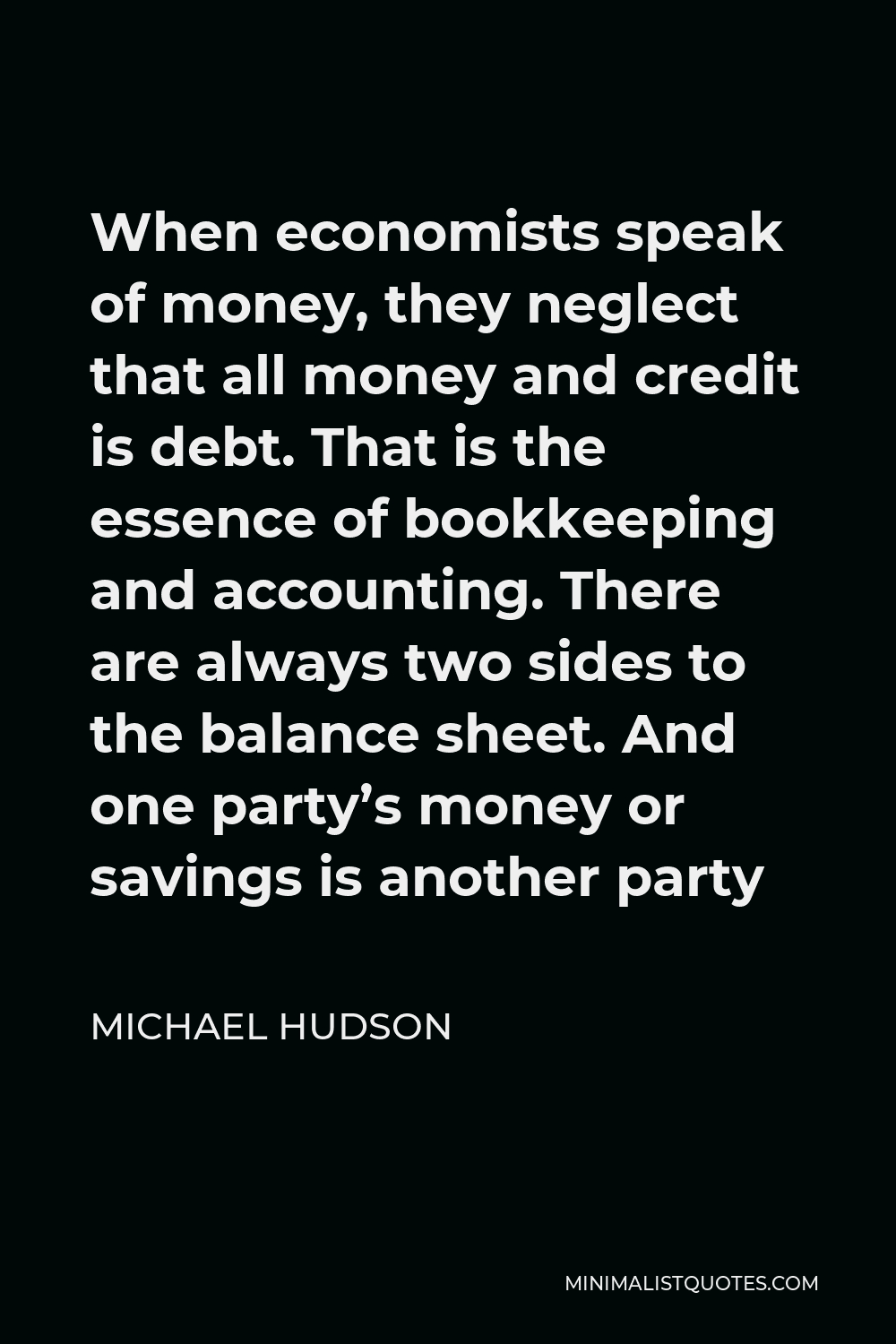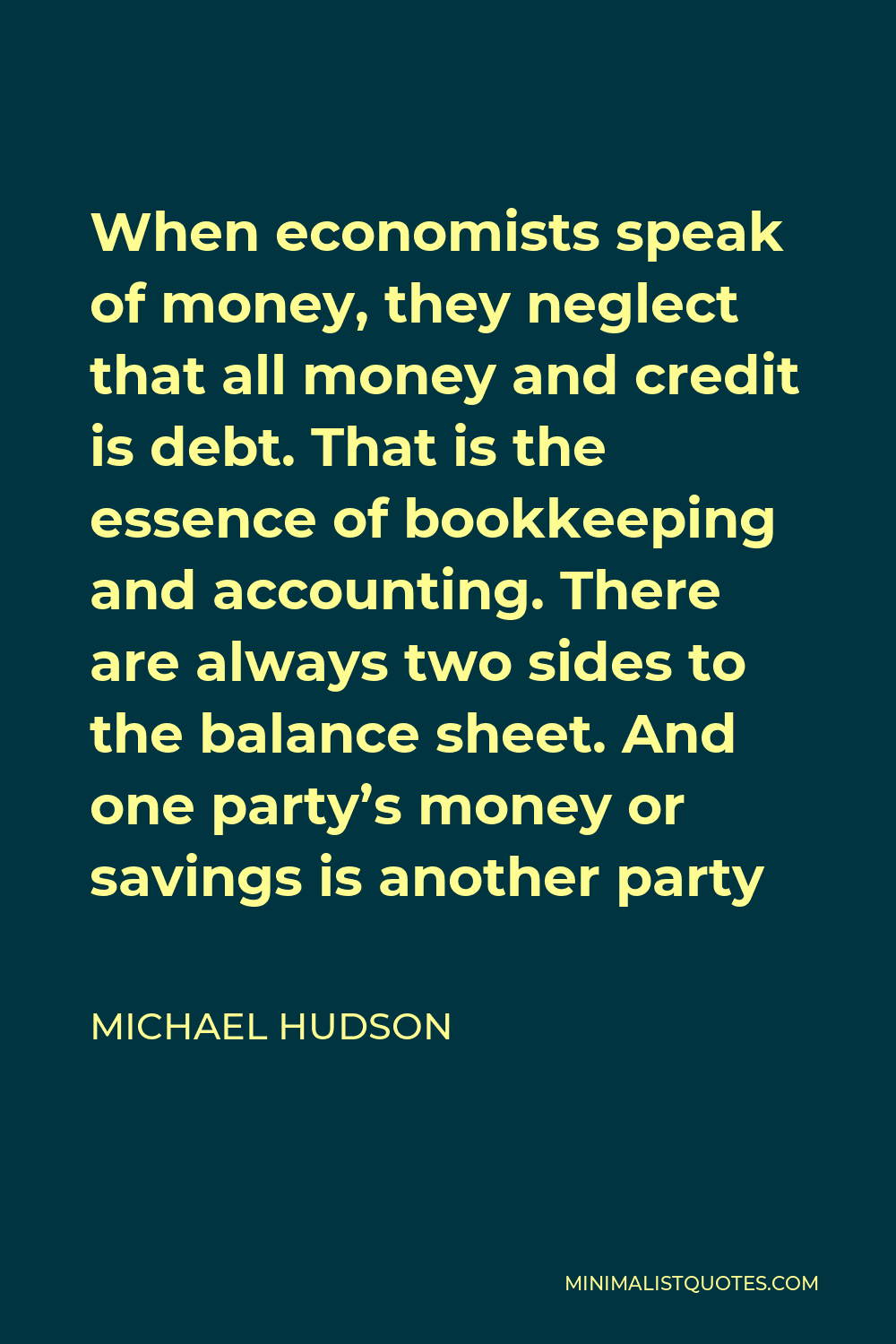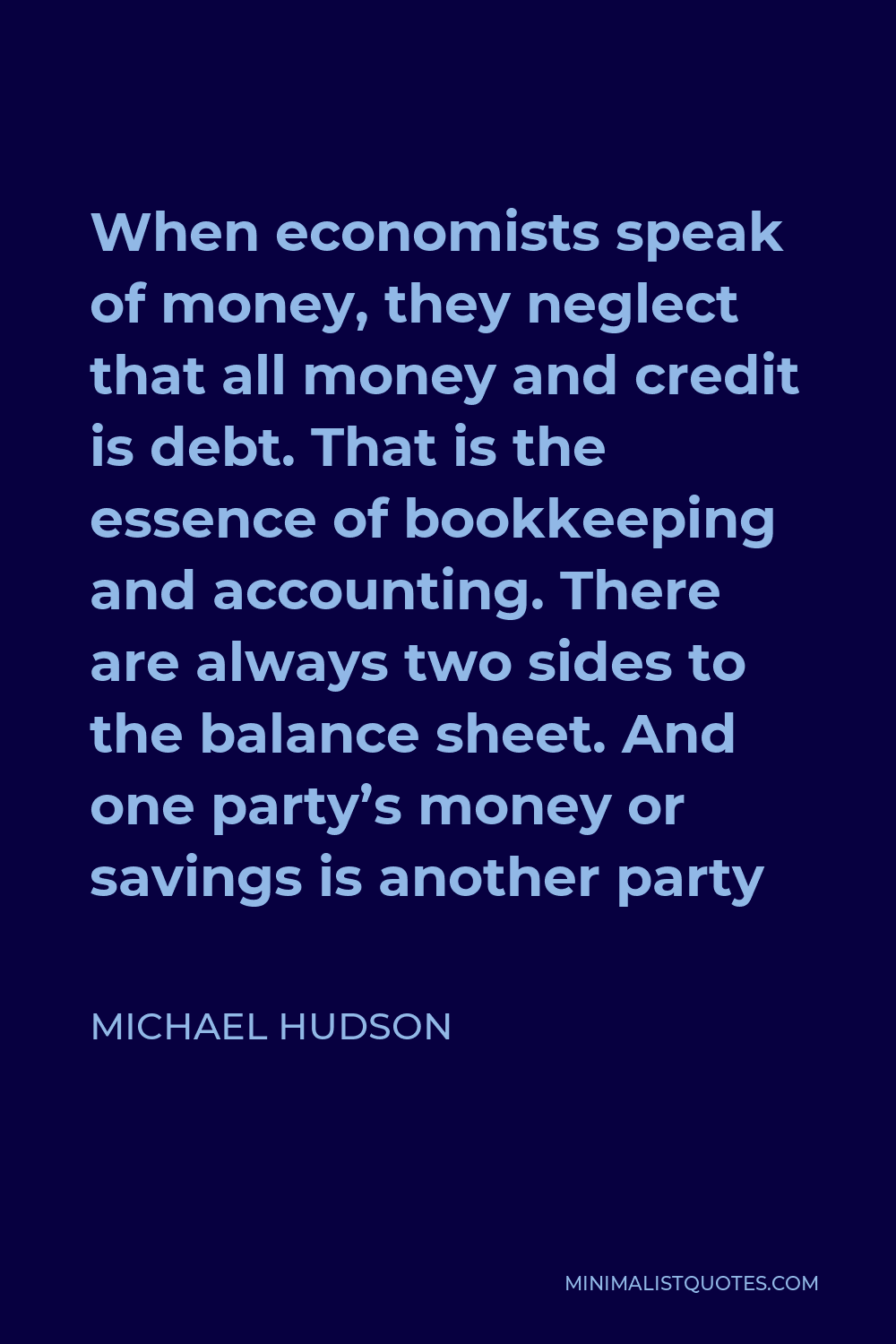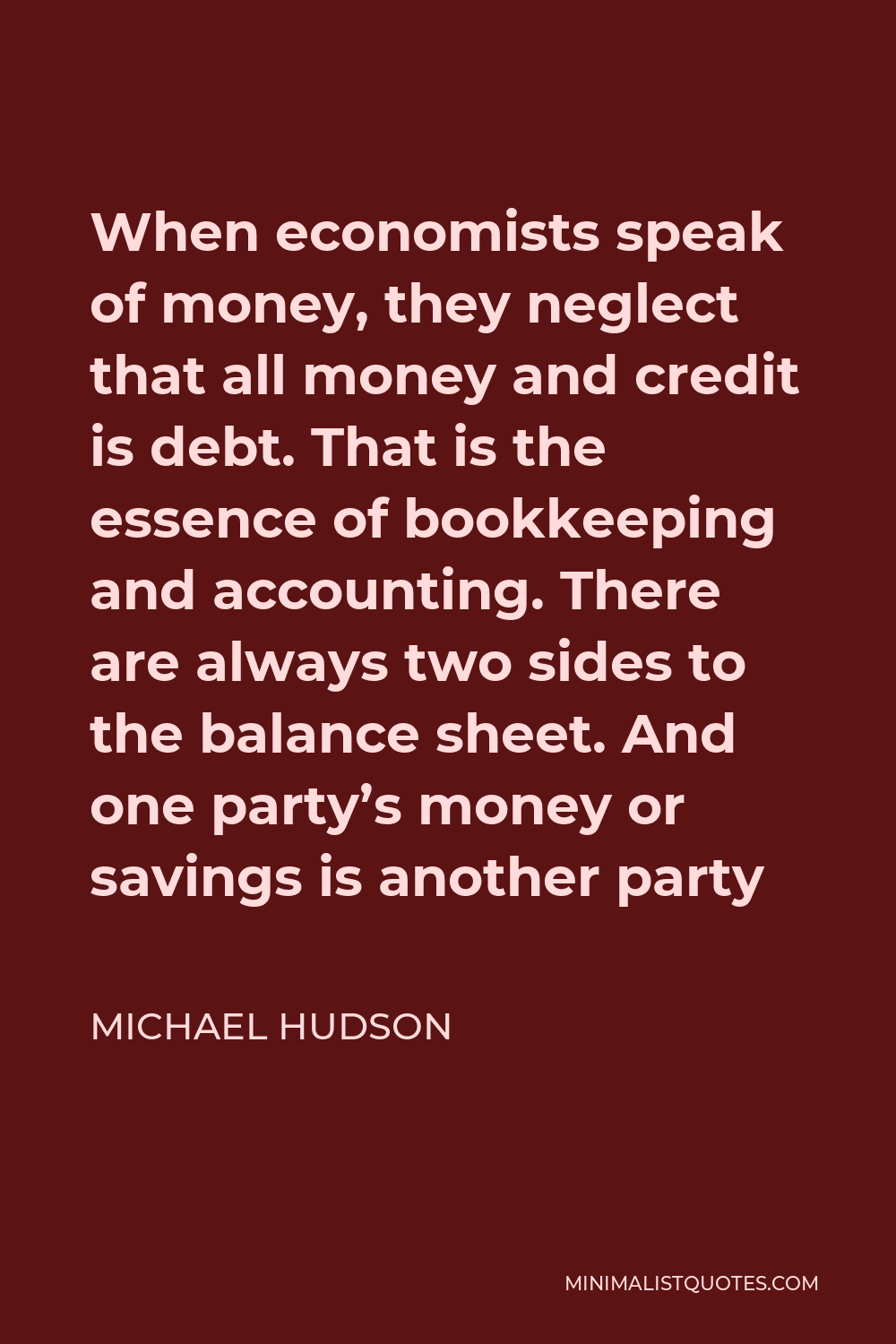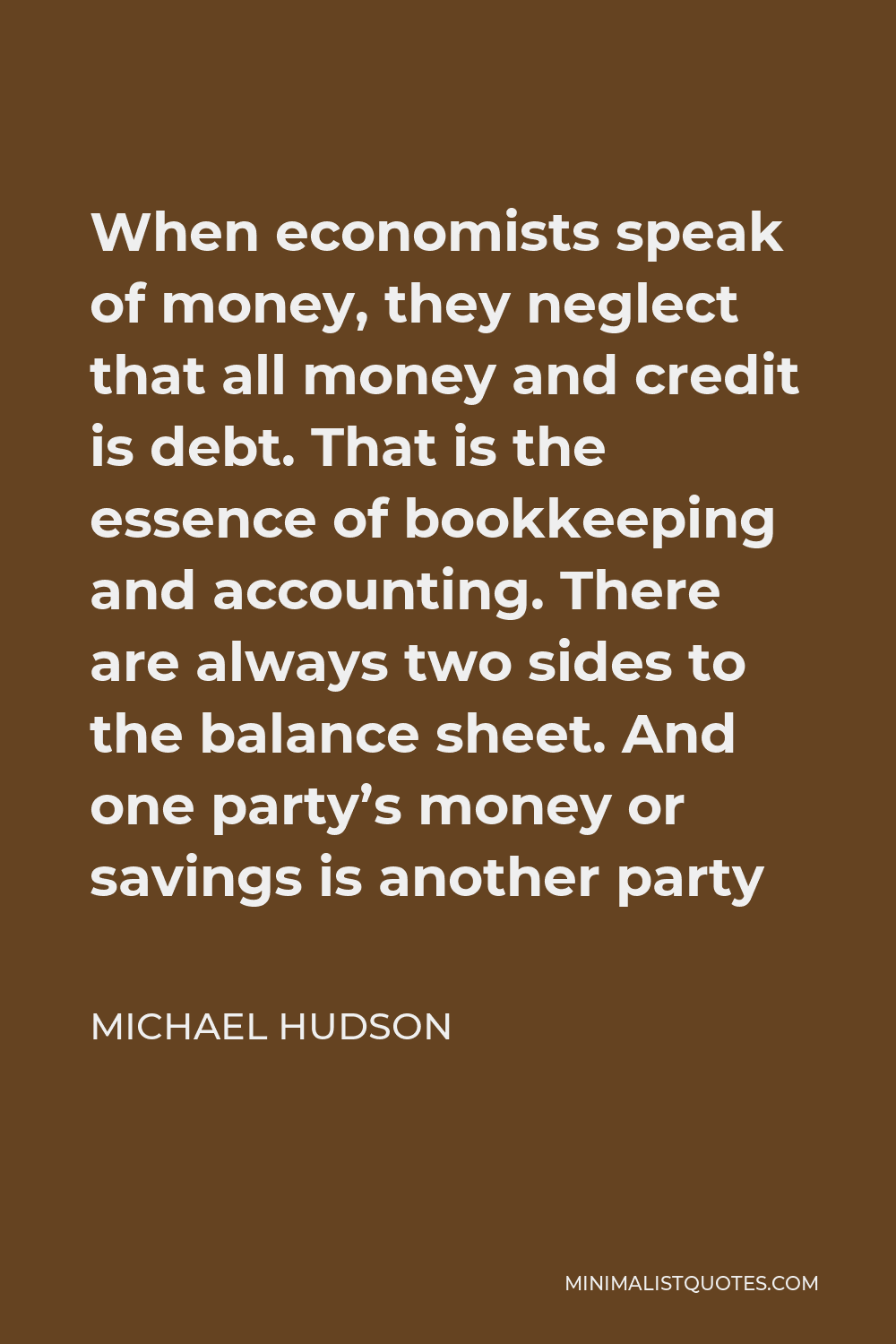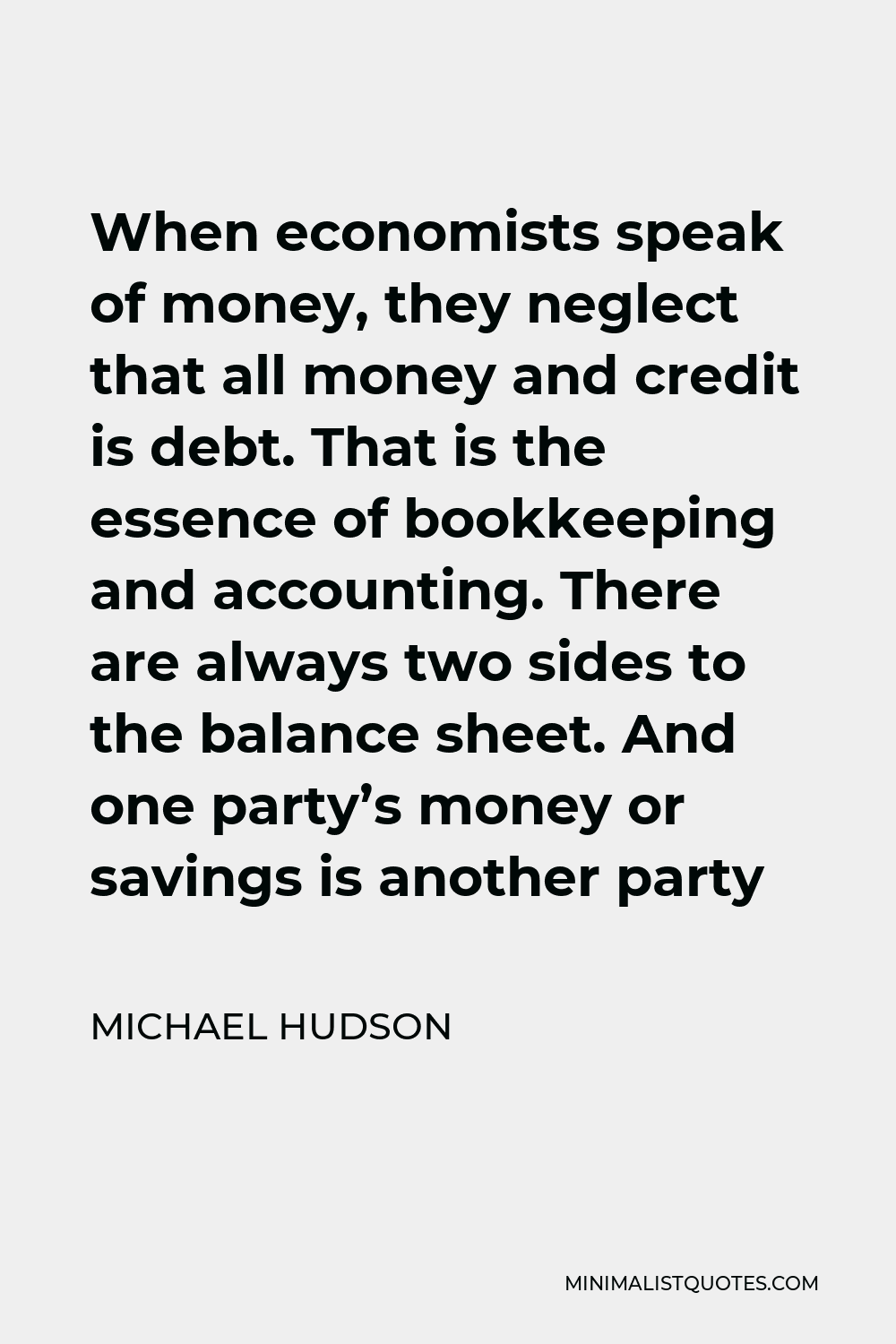The ideological foundation of today’s business schools is that economic control should be shifted out of government hands into those of financial managers – that is, Wall Street.
MICHAEL HUDSONWhen economists speak of money, they neglect that all money and credit is debt. That is the essence of bookkeeping and accounting. There are always two sides to the balance sheet. And one party’s money or savings is another party
More Michael Hudson Quotes
-





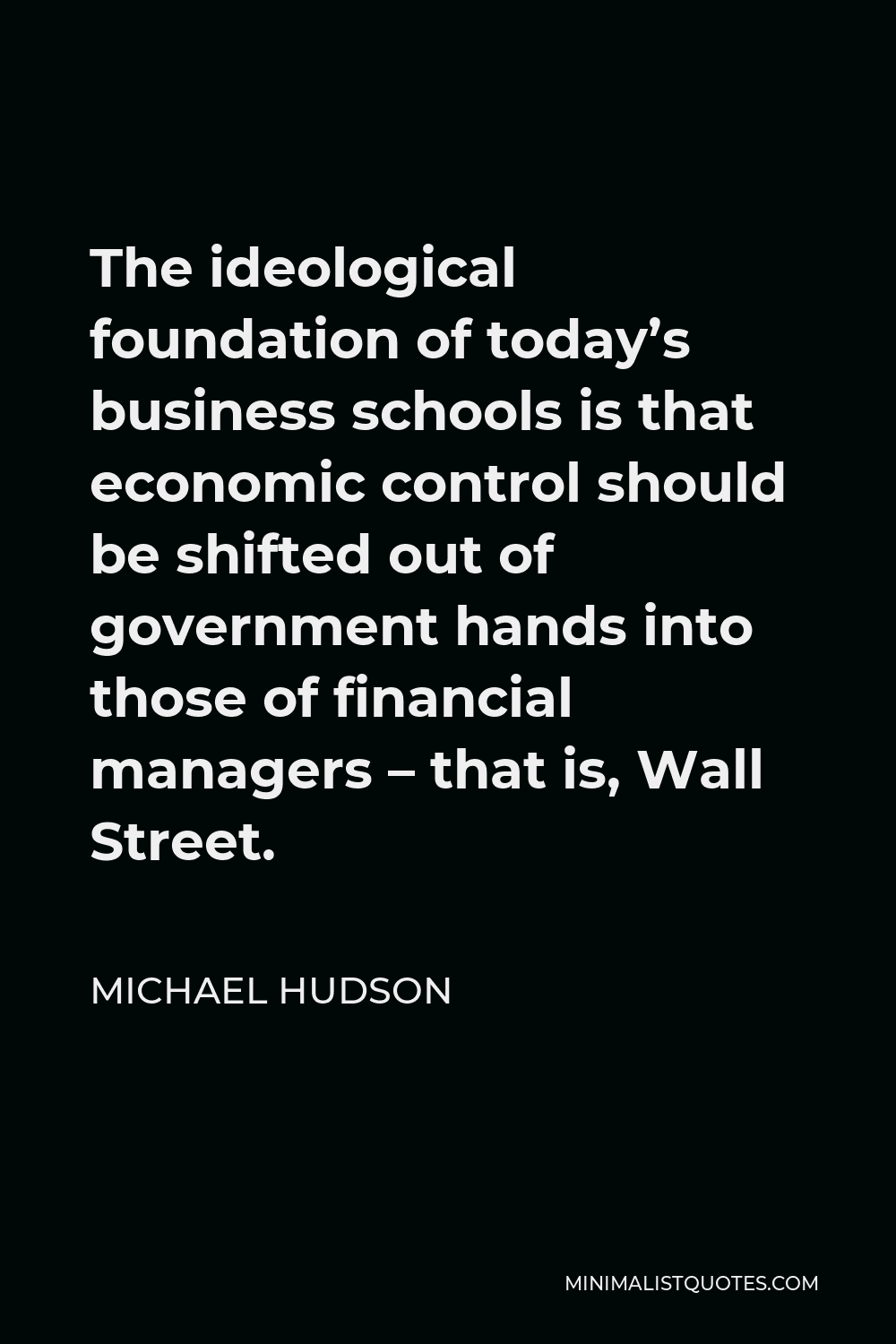
-





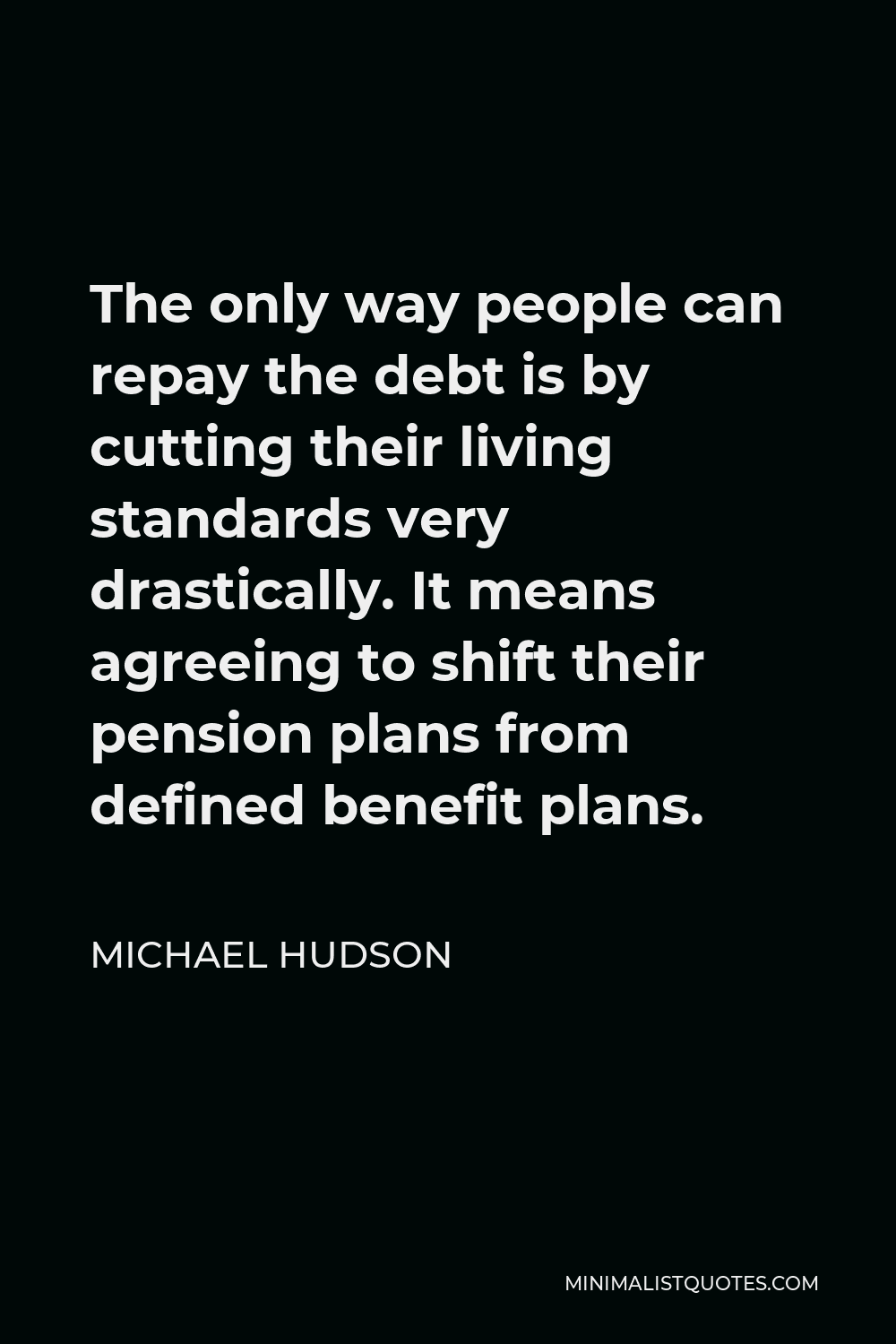
The only way people can repay the debt is by cutting their living standards very drastically. It means agreeing to shift their pension plans from defined benefit plans.
MICHAEL HUDSON -





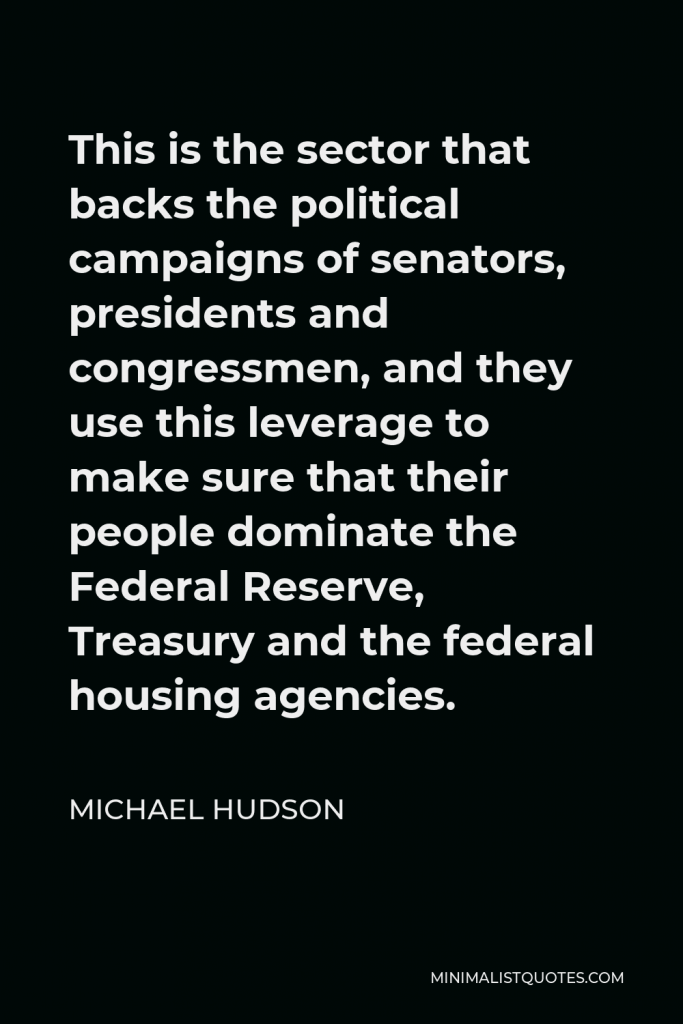

This is the sector that backs the political campaigns of senators, presidents and congressmen, and they use this leverage to make sure that their people dominate the Federal Reserve, Treasury and the federal housing agencies.
MICHAEL HUDSON -





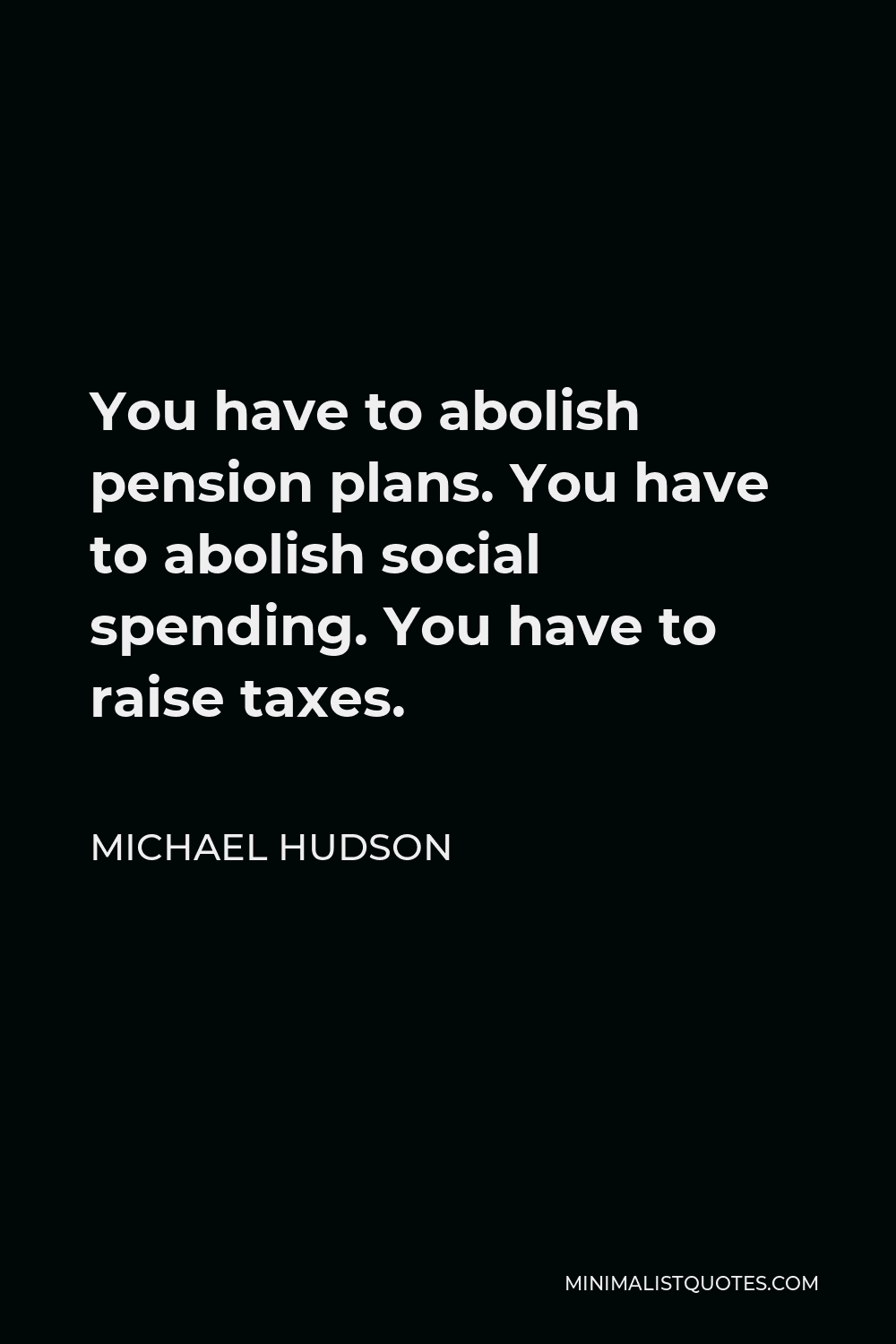
You have to abolish pension plans. You have to abolish social spending. You have to raise taxes.
MICHAEL HUDSON -





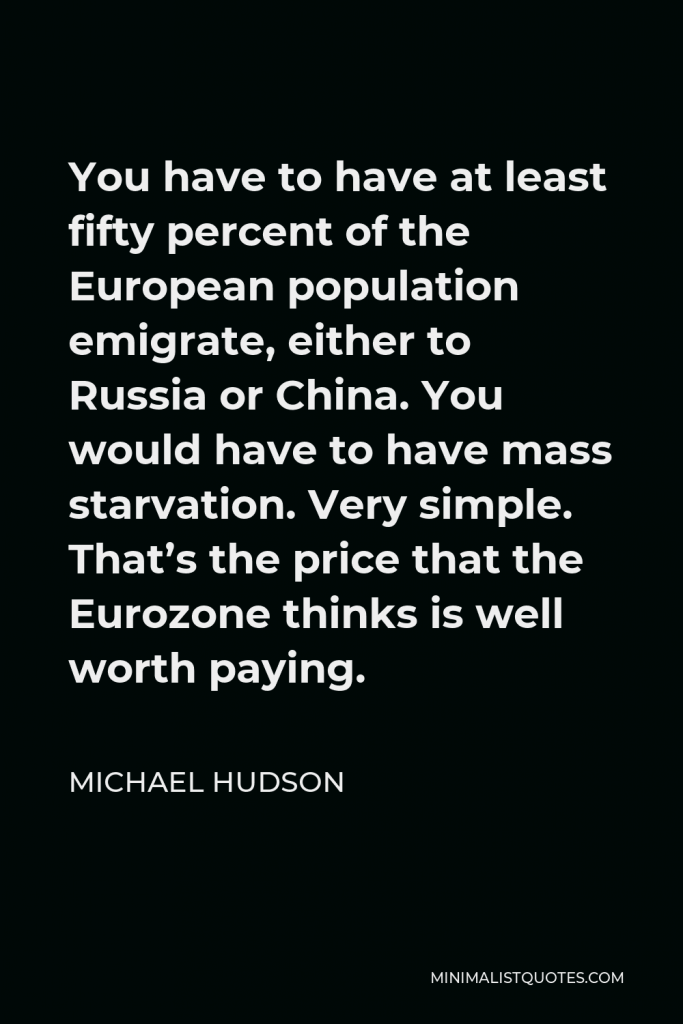

You have to have at least fifty percent of the European population emigrate, either to Russia or China. You would have to have mass starvation. Very simple. That’s the price that the Eurozone thinks is well worth paying.
MICHAEL HUDSON -





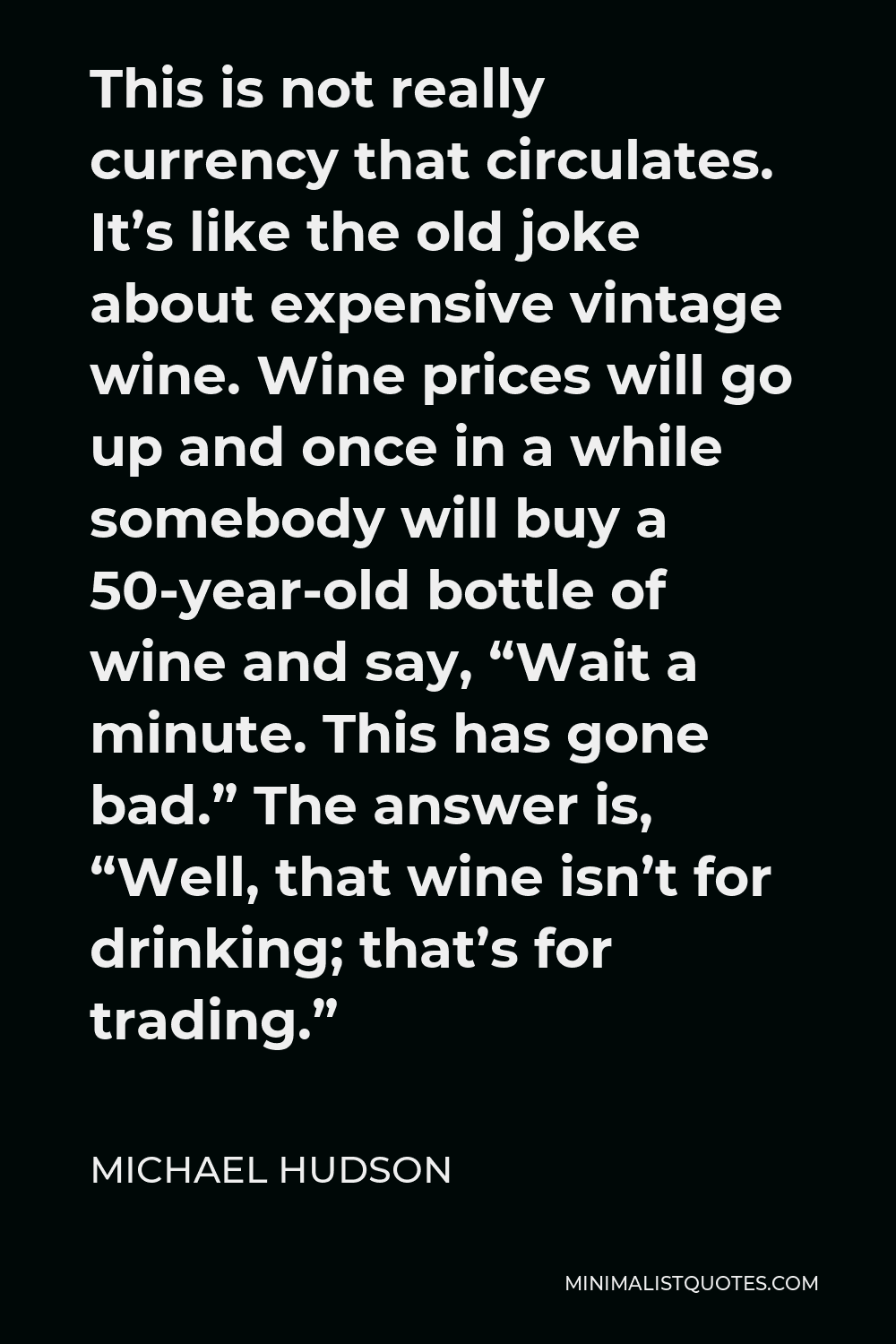
This is not really currency that circulates. It’s like the old joke about expensive vintage wine. Wine prices will go up and once in a while somebody will buy a 50-year-old bottle of wine and say, “Wait a minute. This has gone bad.” The answer is, “Well, that wine isn’t for drinking; that’s for trading.”
MICHAEL HUDSON -





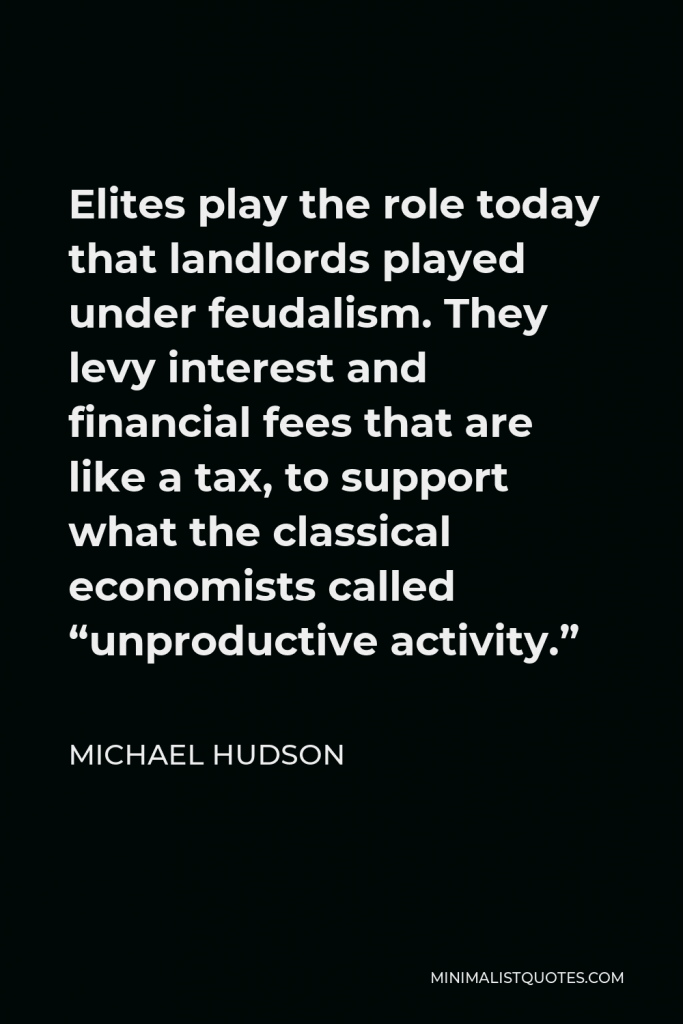

Elites play the role today that landlords played under feudalism. They levy interest and financial fees that are like a tax, to support what the classical economists called “unproductive activity.”
MICHAEL HUDSON -





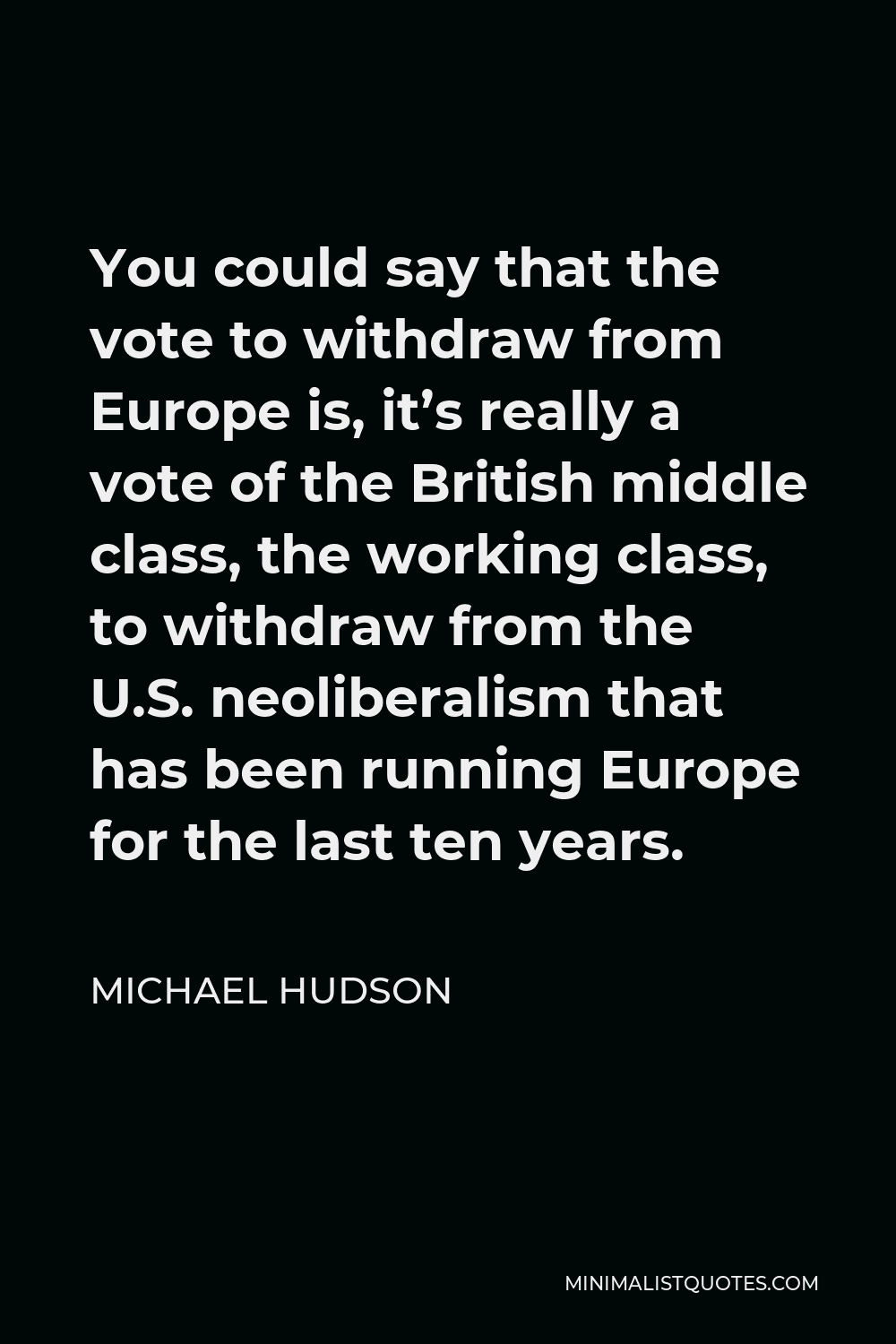
You could say that the vote to withdraw from Europe is, it’s really a vote of the British middle class, the working class, to withdraw from the U.S. neoliberalism that has been running Europe for the last ten years.
MICHAEL HUDSON -





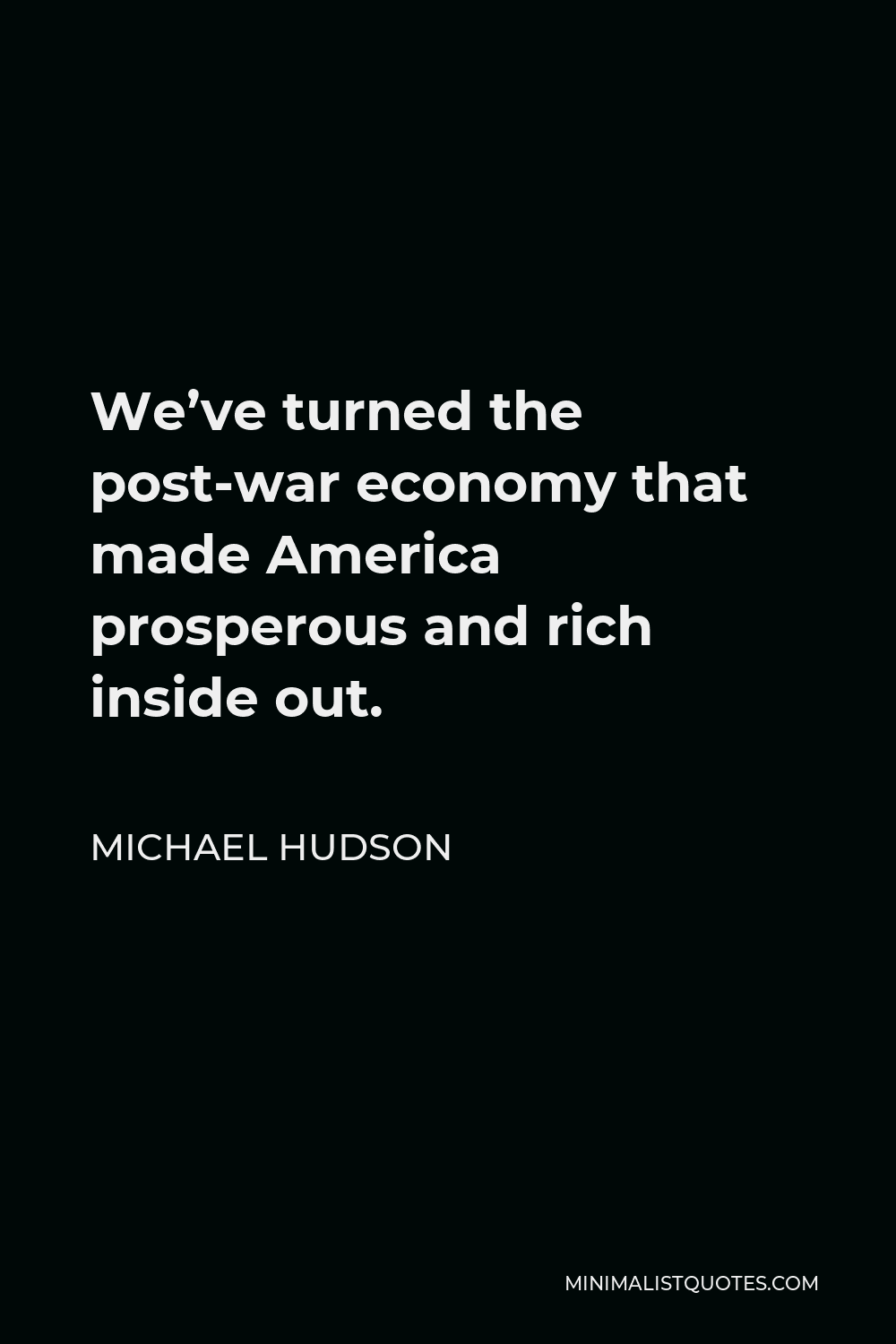
We’ve turned the post-war economy that made America prosperous and rich inside out.
MICHAEL HUDSON -





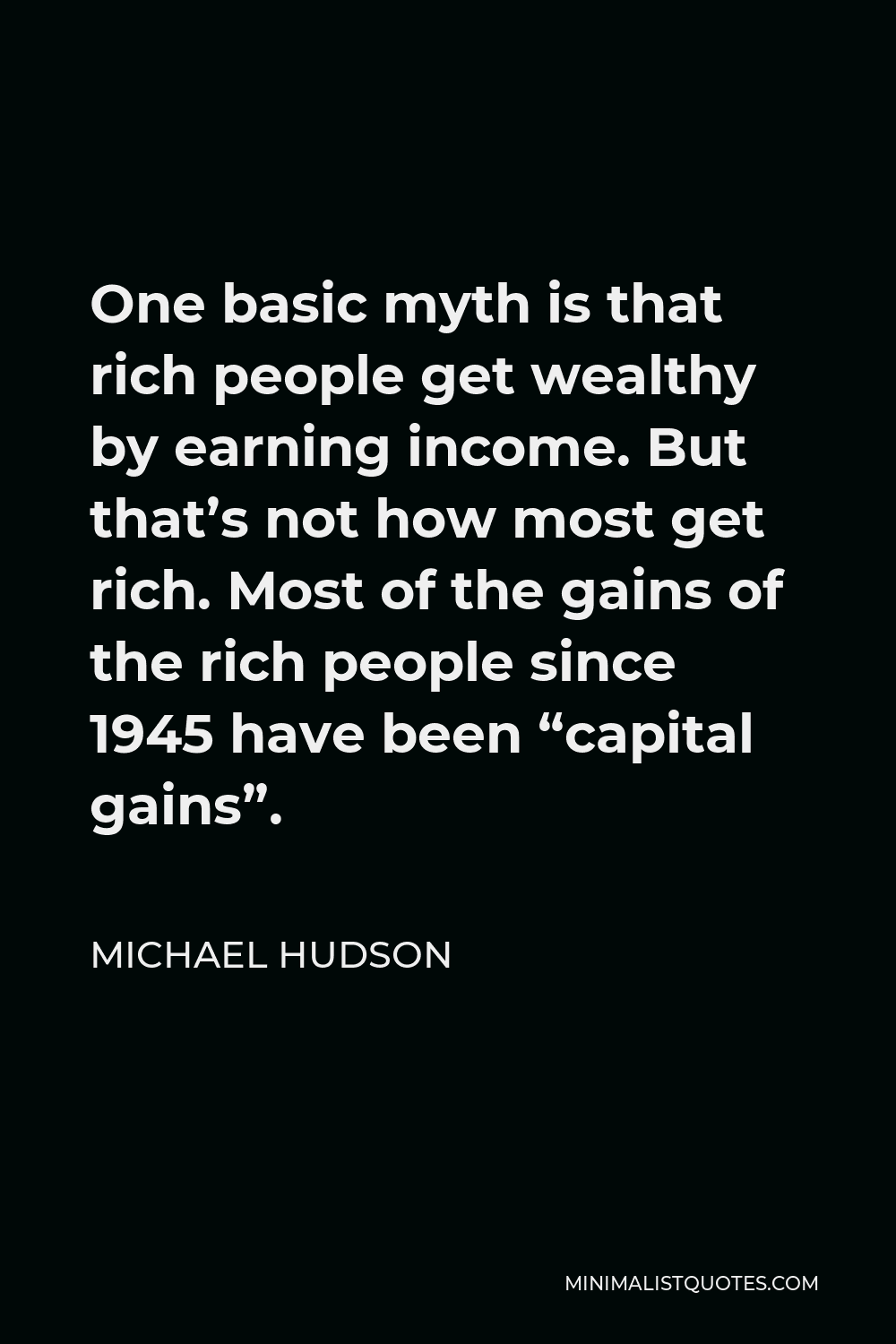
One basic myth is that rich people get wealthy by earning income. But that’s not how most get rich. Most of the gains of the rich people since 1945 have been “capital gains”.
MICHAEL HUDSON -





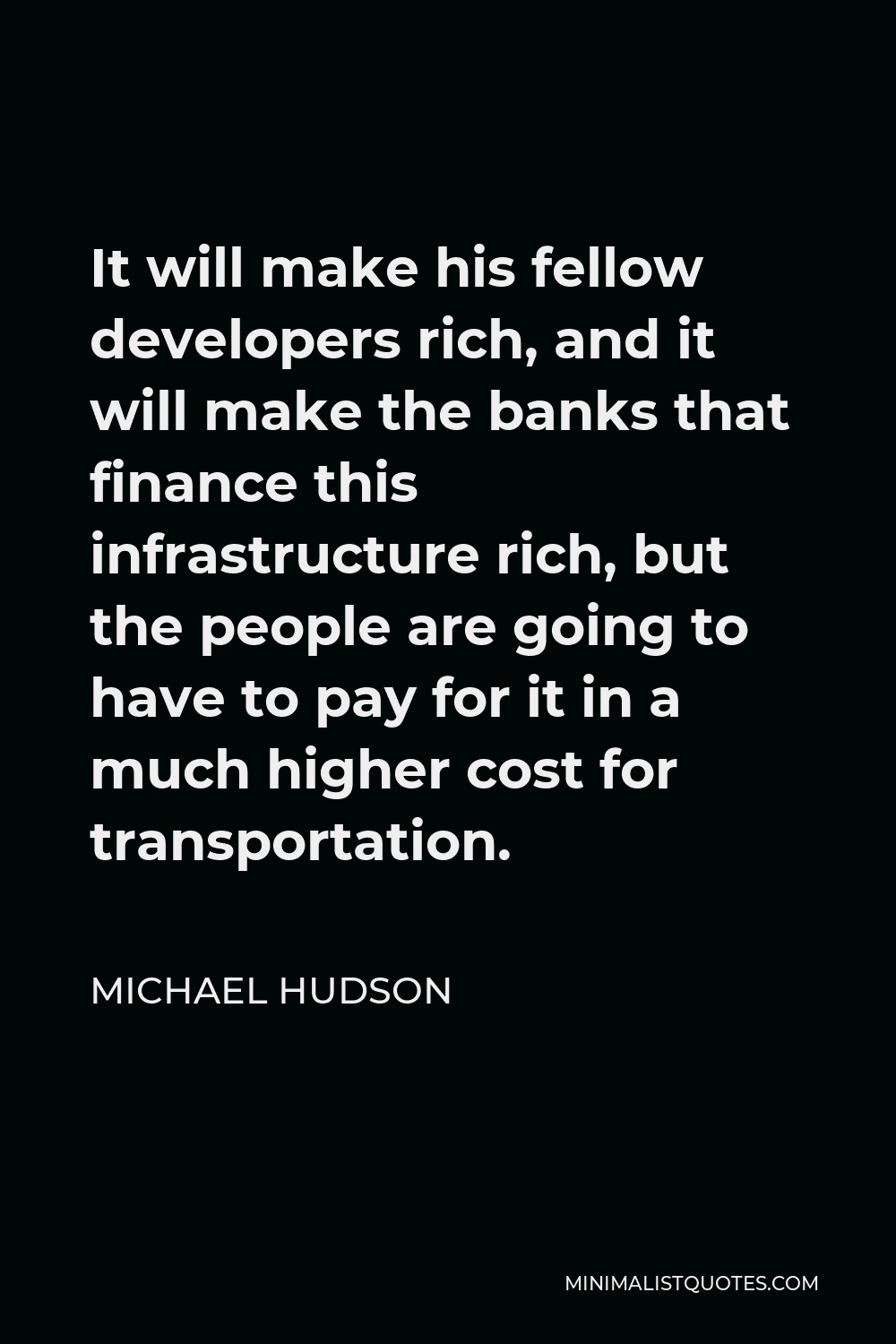
It will make his fellow developers rich, and it will make the banks that finance this infrastructure rich, but the people are going to have to pay for it in a much higher cost for transportation.
MICHAEL HUDSON -





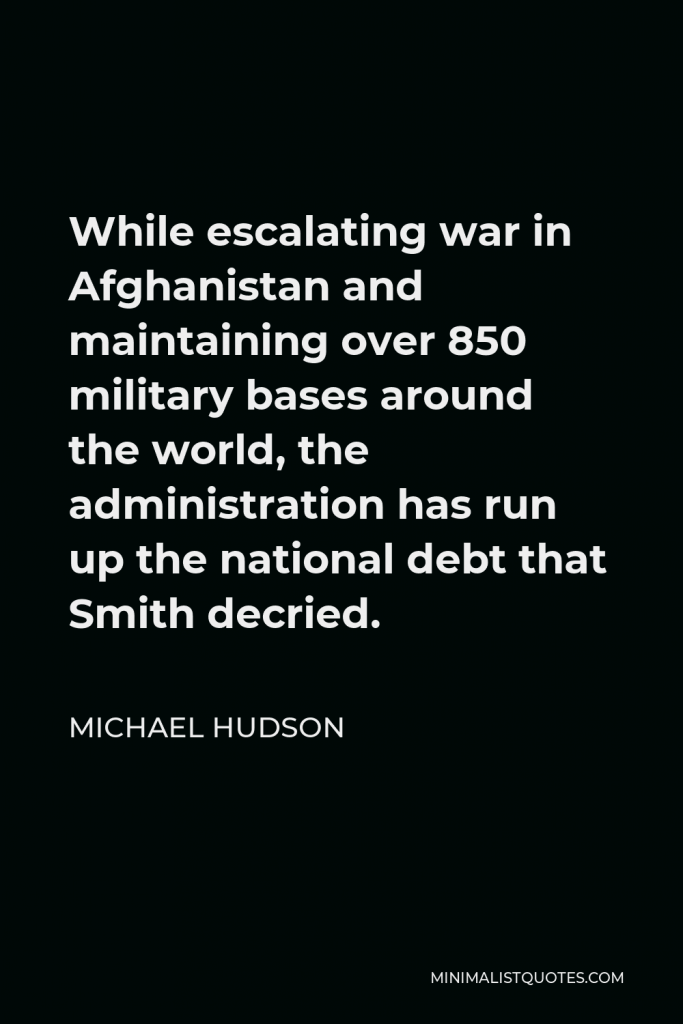

While escalating war in Afghanistan and maintaining over 850 military bases around the world, the administration has run up the national debt that Smith decried.
MICHAEL HUDSON -





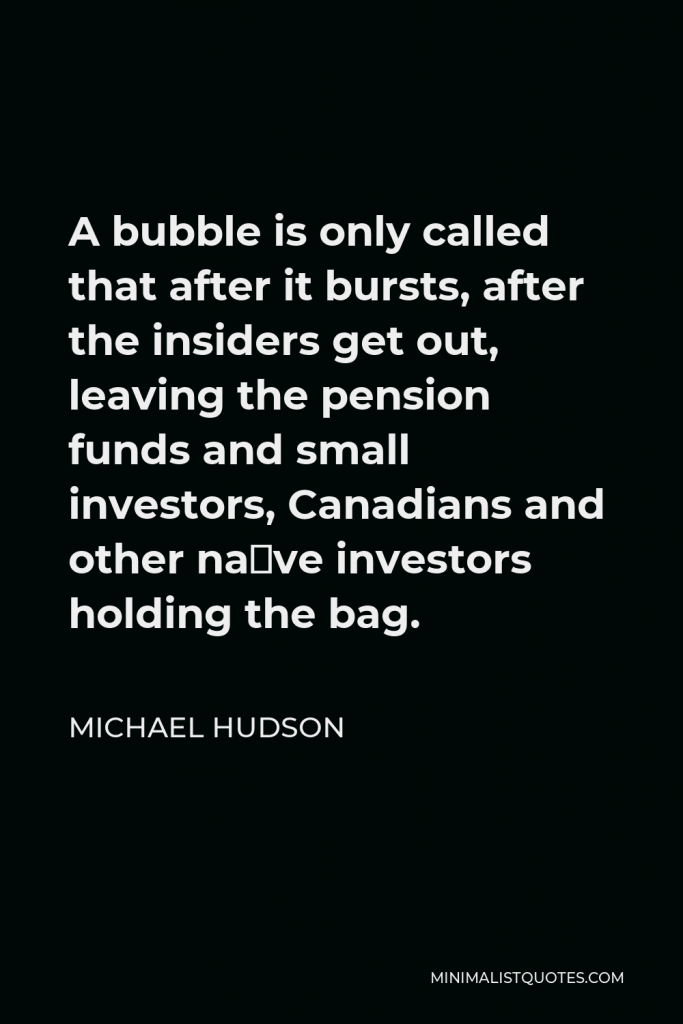

A bubble is only called that after it bursts, after the insiders get out, leaving the pension funds and small investors, Canadians and other naïve investors holding the bag.
MICHAEL HUDSON -






Every government, from the Obama administration right through to Angela Merkel, the Eurozone and the IMF, promise to save the banks, not the economy.
MICHAEL HUDSON -







I guess the main thing that came out of the Panama Papers was that Ukrainian President Poroshenko had promised to divest of his chocolate company and instead, he simply moved it into an offshore account.
MICHAEL HUDSON -





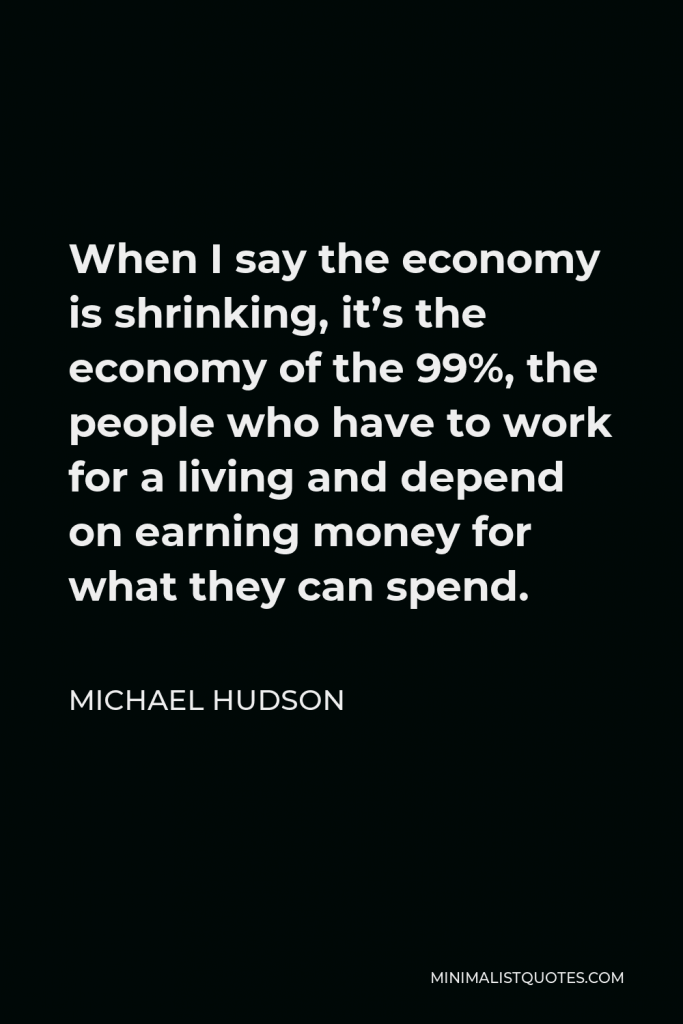

When I say the economy is shrinking, it’s the economy of the 99%, the people who have to work for a living and depend on earning money for what they can spend.
MICHAEL HUDSON
